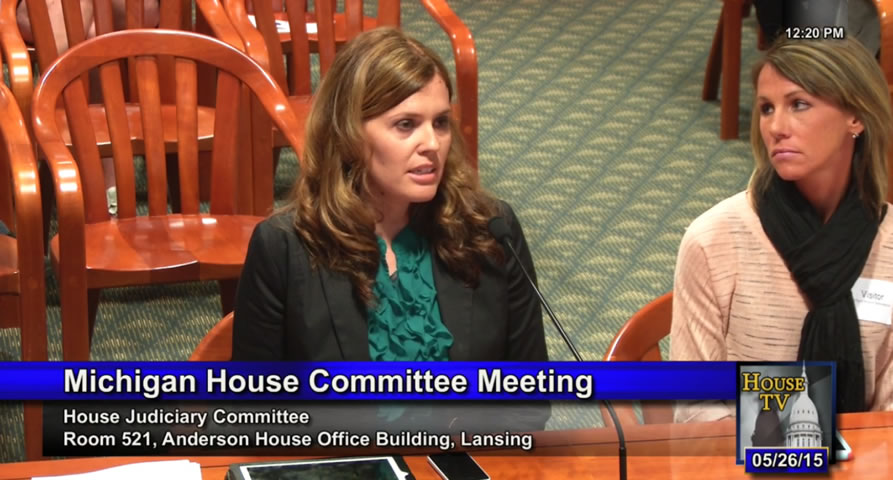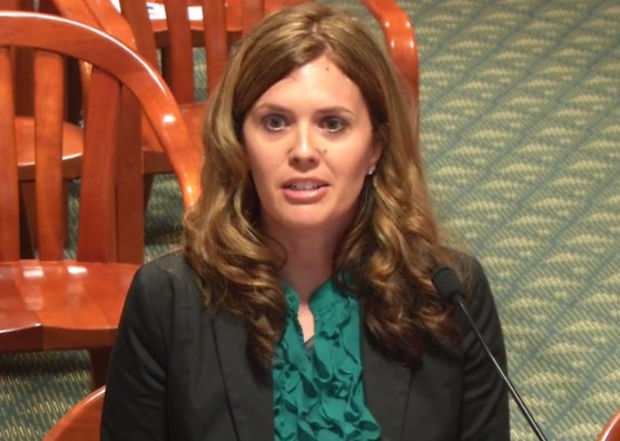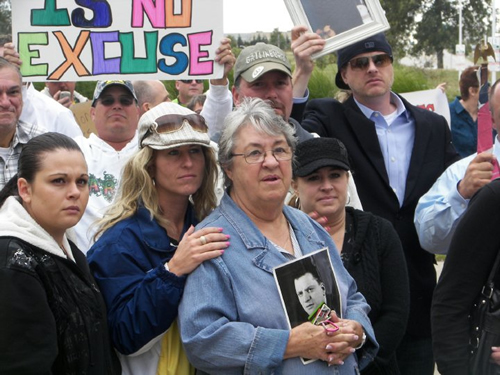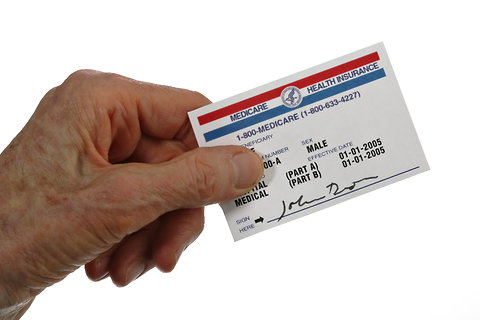
Jun 6, 2015 | Blog, Medical Marijuana, Medical Marijuana Attorney Michael Komorn, News, Uncategorized

Armed police raid home of mom-of-four with MS and accuse her of being a drug dealer even though she could legally grow it
- Ginnifer Hency is allowed drug under Michigan’s medical marijuana laws
- She suffers from multiple sclerosis and is allowed to grow and distribute
- Claims officers took daughter’s birthday money and seized family car
By Kate Pickles For Mailonline
Published: 04:55 EST, 5 June 2015 | Updated: 13:18 EST, 5 June 2015
Armed police raided a woman’s home and seized everything from a lawnmower to her daughter’s birthday money – because she was growing legal medical marijuana.
Ginnifer Hency, 56, suffers from multiple sclerosis, a disease which causes her immune system to attack and destroy healthy nerve cells, and is allowed to grown and use the drug under Michigan’s medical marijuana law.
But this did not stop officers of Michigan’s St. Clair County Drug Task Force from raiding her home and taking her children’s bicycles, her husband’s gardening equipment, TV sets, soccer gear and children’s car seats.

Raided: Ginnifer Hency, speaking at the state’s house of representatives, is allowed to grow marijuana because she suffers from MS. But that did not stop police storming her home and seizing everything from a lawnmower to her daughter’s birthday cash
After they breached my door, at gunpoint, with masks they proceeded to take every belonging in my house. And when I say every belonging, I mean every belonging,’ she said.
The officers also took credit card statements, tax returns, and the public assistance card she used to help feed her family.
Mrs Shattuck testified at the Michigan state House of Representatives, stating that officers hung her lingerie from the ceiling fans as they ransacked her home.
She is a registered medical marijuana care giver which allows her to grow a certain quantity of marijuana plants to distribute to a small number of medical marijuana patients.
‘I was fully compliant with the Michigan medical marijuana laws,’ she told the Michigan House Judiciary Committee in testimony this week. ‘I am allowed to possess and deliver.’
Police suspected she might be selling marijuana to people without a medical marijuana card – something she denies.
She initially faced six criminal charges related to marijuana possession and distribution, three of which have since been dismissed by a district court judge, according to court papers.
She will later appear in court on the remaining charges.
St. Clair County Sheriff Tim Donnellon deny her account of proceedings and claim she is trying to ‘further her cause’ of complete legalization of the drug in the state.
Her case has reignited debate over civil forfeiture and drug laws and have raised questions about whether local authorities are appropriately seizing the property of people who are never convicted of a crime.
Read more: http://www.dailymail.co.uk/news/article-3112157/Armed-police-raid-home-mom-four-MS-accuse-drug-dealer-legally-grow-it.html#ixzz3cFXG3H1O

May 18, 2015 | Criminal Defense Attorney Michael Komorn, Marijuana Criminal Defense Attorney Michael Komorn, Medical Marijuana Attorney Michael Komorn, News
The Michigan Legal Advisor News Letters.
Read the current newsletter from Michigan’s #1 Medical Marijuana Defense Attorney Michael Komorn.
KOMORN LAW NEWSLETTER ISSUE #1 May 2015
Michael Komorn is recognized as a leading expert on the Michigan Medical Marihuana Act. He is the President of theMichigan Medical Marijuana Association (MMMA), a nonprofit patient advocacy group with over 26,000 members, which advocates for medical marijuana patients, and caregiver rights. Michael is also the host of Planet Green Trees Radio, a marijuana reform based show, which is broadcast every Thursday night 8-10 pm EST. Follow Komorn on Twitter.


Nov 25, 2014 | Medical Marijuana Attorney Michael Komorn, Michigan Medical Marijuana Act
This seventy-year-old grandmother and former Lake Orion police dispatcher was denied the right to present a medical marijuana defense in her criminal trial.
By Michael Komorn
Mrs. Barbara Argo, a 70-year-old grandmother and former Lake Orion police dispatcher is appealing her recent drug conviction. Mrs. Argo was convicted in June of one count of delivery/manufacture of marijuana, a four-year felony. In July, she appealed the conviction.
Grounds for the appeal are based on a motion Oakland Circuit Judge Wendy Potts granted prosecutors that prevented Argo or her attorney from using the words “medical marijuana,” “patient,” “caregiver,” or any reference of the fact that Argo was legally allowed by the state to cultivate and possess the plants.
“We believe that Mrs. Agro was denied her constitutional right to present a defense.
She was a registered patient with the State of Michigan, as well as being a registered caregiver, which falls under the protections of the Medical Marihuana Act,” Attorney Mary Chartier told The Daily Tribune.
This legal sidestep is one being used at an exponentially increasing pace by prosecutors throughout the state.
Jeffrey Ellis, a medical marijuana caregiver in Livonia says he was in compliance with the law when he was raided in 2009 and is immune to arrest and prosecution, but during a September 26 hearing in Huron County Circuit Court, Chief Assistant Prosecutor Dawn A. Schumacher asked the judge to prevent the jury from knowing Ellis was a legal patient and caregiver.
According to Schumacher, Ellis was in violation of the law by having too many plants and did not have the required lock on the door to the growing area. She argued those violations ought to prevent Ellis’ immunity to prosecution.
However, Ellis’ attorney and President of the Michigan Medical Marijuana Association, Michael Komorn, says that police actually confiscated marijuana clippings, not actual plants and that Ellis had not exceeded the number of plants permitted by state law.
“The courts are given the task of ensuring a fair trial,” Komorn says, “and for the first time in my 18 years of practicing law, we’re seeing the constitutional right to present a defense ignored and intentionally circumvented.”
“Prosecutors and law enforcers are working to deny our most sacred right in the constitution, and that is to present a defense. They fight hard to not let the people of the community hear the facts, and make the legal and factual decisions themselves.”
“The ultimate decider of truth in the criminal justice system is the jury, that’s how it’s always been.”” Komorn told TMC. “They decide if the person is guilty or not. You have two sides, the prosecutor and the defense attorney and they’re at odds. The person charged with the crimes presents their defense to the jury and the jury decides if they’re guilty or not.
“You can believe they had a horrible time seating that jury,” Mrs. Agro told TMC.
“One person after another told the judge and prosecutor that they didn’t see anything wrong with marijuana and would not be impartial on the jury. It took them a long time to find the people who would find me guilty, but they did.
Mrs. Argo claims that three separate jurors asked Judge Potts during the trial if she was a patient, and Potts told them she couldn’t answer that question because it wasn’t relevant to the trial.
Mrs. Argo and her husband Sal, became certified medical marijuana patients in June 2010. Mrs. Argo for her acute arthritis in her hands and knees, and Mr. Argo for bone spurs in each of his shoulders which limited range of motion. “He couldn’t even lift his hands above his waist,” Mrs. Agro reports.
The paramilitary Oakland County Narcotics Enforcement Team raided the Argo home last August, in conjunction with a sweep of medical marijuana homes and businesses. Mrs. Agro says that during the raid, “mattresses were ripped apart, cabinets were emptied, and our plants were ripped from their pots and dirt thrown across rooms and even into our bed. Approximately $11, 270 dollars was taken for our home, money that had been saved and withdrawn to purchase a vehicle.”
Sal Argo received a call to inform him that his son’s house (with grandchildren present) was being raided, so he quickly left the house to check on his family, leaving the front door unlocked. The prosecutor claims that their unlocked house failed to meet the requirements of an “enclosed locked facility,” and did not qualify for the medical marijuana defense.
Sal Argo was also charged, but died shortly thereafter of a heart attack.
Assistant Prosecutor Beth hand instructed jurors to, “follow the law and not use sympathy,” when weighing her fate.
Assistant Prosecutor Beth Hand, after successfully arguing to prevent the jury from knowing Agro was legally allowed by Michigan law to cultivate and possess the plants, instructed jurors to, “follow the law and not use sympathy,” when weighing her fate.
“You must hold the defendant accountable for her actions,” Hand instructed the jurors during her closing argument.
Mrs. Agro was sentenced to 90 days of probation on July 13 and Potts ordered her to perform 20 hours of community service, which Agro has already completed.
If you or someone you know is facing charges as a result of Medical Marijuana prescribed to you as a Medical Marijuana patient under the Michigan Medical Marijuana Act, contact Komorn Law and ensure your rights are protected.
Michael Komorn is recognized as a leading expert on the Michigan Medical Marihuana Act. He is the President of the Michigan Medical Marijuana Association (MMMA), a nonprofit patient advocacy group with over 26,000 members, which advocates for medical marijuana patients, and caregiver rights. Michael is also the host of Planet Green Trees Radio, a marijuana reform based show, which is broadcast every Thursday night 8-10 pm EST. Follow Komorn on Twitter.
Nov 20, 2014 | Medical Marijuana Attorney Michael Komorn, Michigan Medical Marijuana Act
https://www.youtube.com/watch?v=ZaoMK20s0PQ
Komorn on WJR 760-AM with Mitch Albom for Michigan Medical Marijuana Debate
Subscribe to Komorn Law on YouTube
If you or someone you know is facing charges as a result of Medical Marijuana prescribed to you as a Medical Marijuana patient under the Michigan Medical Marijuana Act, contact Komorn Law and ensure your rights are protected.
Michael Komorn is recognized as a leading expert on the Michigan Medical Marihuana Act. He is the President of theMichigan Medical Marijuana Association (MMMA), a nonprofit patient advocacy group with over 26,000 members, which advocates for medical marijuana patients, and caregiver rights. Michael is also the host of Planet Green Trees Radio, a marijuana reform based show, which is broadcast every Thursday night 8-10 pm EST. Follow Komorn on Twitter.

Nov 20, 2014 | Medical Marijuana Attorney Michael Komorn, Michigan Medical Marijuana Act
patients & caregivers should not be arrested for following the law
Medical marijuana remains a controversial issue in Michigan, despite nearly two-thirds of voters approving the Michigan Medical Marihuana Act. Since 2008, when the act was approved, municipalities statewide have varied in their approach to medical marijuana, unsure of their powers to govern patients, growing operations, dispensaries and medicinal marijuana transfers.
While most prosecutors and law enforcement agencies have come to accept medical marijuana and its benefits, some have remained steadfast that all marijuana is illegal. This is an unfortunate effect of decades of anti-marijuana campaigns and legislation, which medical marijuana supporters are now fighting to counteract. That sentiment and feeling may still exist, but so does one simple fact — it is legal for Michigan residents to possess medical marijuana, and those patients and caregivers should not be arrested for following the law. Registered patients are protected from arrest, prosecution or penalty, according to Section 333.26424 of the Act.
Linden City Attorney Charles McKone recommended in 2011 that police “continue arresting anyone possessing or smoking marijuana” and “it’s up to the individual to defend themselves.”
More recently, in 2013, McKone shied away from comments about Linden’s arrest first, ask questions later policy when questioned by the Tri-County Times, instructing those calls simply be forwarded to him or the interim city manager.
This bit of harassment from local law enforcement must stop. Law-abiding patients possessing well below the state-approved amount of medical marijuana are forced to defend themselves in court for following the law. The Linden arrest policy is seemingly bent on circumventing Michigan’s medical marijuana law.
Recent cases in the Michigan Supreme Court, including an opinion on dispensaries recently, solidify medical marijuana in this state. With the highest court offering its opinion on specifics within the law, it defined, defended and protected medical marijuana in Michigan.
The Michigan Court of Appeals has already ruled policies like those in Linden do not trump the state’s medical marijuana laws. Last August, the court ruled on behalf of attorney and patient John Ter Beek, striking down the city of Wyoming’s ban on medical marijuana, calling it “void and unenforceable.”
Ironically, policies of intention and instruction of arresting anyone possessing medical marijuana, which exist in many communities statewide, opens up municipalities to potential litigation should a patient feel compelled to seek remedies. Repeated and public policies of wrongful arrest is not only bad for the innocently arrested, but a community at large, with local officials attempting to overrule state law and ignore the will of the people.
As we move forward, medical marijuana is, and will be for the foreseeable future, legal in Michigan. What supporters and advocates can do is tell our stories and educate detractors. I welcome the opportunity to sit down with Mr. McKone, or any other official in the state, to discuss the benefits of the Michigan Medical Marihuana Act and the harmful effects to Michigan residents of policies such as those enacted in Linden.

Nov 20, 2014 | Medical Marijuana Attorney Michael Komorn, Michigan Medical Marijuana Act
Michigan Medical Marijuana Users At Risk of Losing Welfare Benefits
Earlier this month, the Michigan House approved legislation requiring welfare recipients to pass a random drug screening test to remain eligible for family independence programs if there is a “reasonable suspicion” of drug activity. While the legislation is intended to prevent Michigan residents from abusing the public welfare system, failure to protect medical marihuana patients is suspect and poised to undermine the Michigan Medical Marihuana Act (MMMA) and those who voted for it.
In late April, amendments to the bill were suggested, including exempting medical marihuana patients from testing because they have been given permission by the state of Michigan to use marihuana. The addendums, however, failed to gain traction.
With a goal to remove drug users and abusers from public assistance, lawmakers have potentially jeopardized the more than 120,000 medical marihuana patients in the state, some of whom rely on public assistance, disability and social security to survive. If state-approved patients test positive, they are at risk of losing needed assistance, even though they are following the letter of Michigan law.
The real question is why was the medical marihuana exemption denied? While the existence of federal funds in the state’s welfare program may have played a part, states, Michigan included, have not shied away from taking the federal government to task in such disagreements.
Just last year, Michigan’s Attorney General joined several states in suing over President Obama’s health care plan. In this instance, as well as Arizona’s enacting of an immigration law, Michigan acted in the interest of all of its residents, protecting the 10th Amendment and preserving states’ rights.
Given that President Obama has made clear his lack of intention to prosecute medical marihuana patients, allowing an exemption for patients could be justified and accepted if the state were willing to fight for it.
The lack of a medical marihuana exemption is an unfortunate example of the state failing to protect patients despite the existence of a law that was approved by its residents. With medical marihuana’s legality at the state level, this legislation feels like yet another discounting of patients — their health, lives and families — just months after legislators in Lansing passed several amendments to the MMMA in an attempt to clarify the law for patients and lawmakers.








